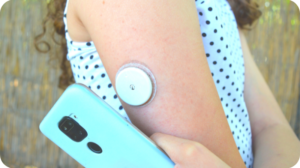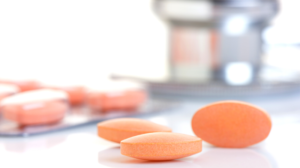A recent study published in the journal JAMA (the Journal of the American Medical Association) has raised concerns about a supplement commonly used as a sleep aid. The research concluded that the dosage of melatonin users regularly take has increased significantly over the last ten years. The levels some users are currently ingesting may cause side effects and other health issues.

This shouldn’t come as a surprise. Americans are fighting an ongoing battle against an epidemic of sleeplessness, and that battle is being fought most often with pills—from prescription meds such as Ambien, to what many users assume are more natural solutions like melatonin. In point of fact, most over-the-counter melatonin supplements are synthetic forms of the hormone.
The assumption that supplemental melatonin could be a suitable alternative to more powerful drugs is well-founded in science. It is, after all, naturally occurring and plays a role in regulating the body’s circadian rhythms—your internal 24-hour clock that responds to the daily cycle of light and dark. The most important function of circadian rhythms is fostering sleep through the ebb and flow of specific hormones. Melatonin has long been used by travelers to adjust for jet lag, and by shift workers to return to a natural sleep cycle.
However, supplemental melatonin was never intended for long-term use. You should not take it more than two months straight, and ideally no more than a few days in a row. The goal should always be to allow your body to readjust and adopt a normal, healthy sleep rhythm on its own.
Most problematic is the misunderstanding surrounding dosage. Far too many American consumers assume that more is always better when it comes to supplements. This couldn’t be further from the truth. Here are commonsense guidelines to make sure you don’t experience any detrimental effects from the melatonin you take.
- Start low. Always try a modest dose first, between .3 to .5 milligrams. (Unfortunately it is difficult to find pills in these low doses. The most common over-the-counter products are 3 milligram and 5 milligram pills. It is okay to cut pills in half or even smaller.)
- Shop carefully. A 2017 study in the Journal of Clinical Sleep Medicine found that over-the-counter melatonin products commonly contained different amounts than what was on the label—ranging from about 80 percent of the stated amount, to hundreds of times more than listed. The worst offenders were chewable products. Some products even contained serotonin. This is why you should only buy supplements with the “USP Verified” stamp on the label.
- Don’t use it every night. Only take melatonin for a few nights in a row, and no more than a few days a month.
Research has found that doses above 5 milligrams are no more effective than lower doses, but may be much more harmful. As with any supplement, consumers should understand that just because the product is sold over-the-counter, does not mean it is benign and free of side effects. The FDA has done little to counter this general misunderstanding; melatonin is officially regulated as a supplement, which means there is far less oversight of claims and use than if it were considered a drug.
There is a small amount of evidence linking ongoing high-dose use with increased potential for dementia and premature death. Although it is not likely that melatonin alone can significantly contribute to the onset of a disease such as Alzheimer’s or cancer, there are chronicled health issues. Potential side effects include headaches, dizziness, nausea, confusion and even depression, and abnormally low blood pressure.
Melatonin can also interact with medications, including serious drugs such as Lexapro, Xanax, and Zoloft, and should not be taken in conjunction with sedatives, tranquilizers, or alcohol. The hormone should also be avoided if you suffer from blood pressure conditions, diabetes, autoimmune disease, depression, glaucoma, or liver disease.
The good news? If occasional, low-dose (less than 1 milligram) melatonin helps you sleep when you’re having difficulty, you are most likely safe to continue using it. However, it’s wise to also try improving sleep hygiene and pre-sleep routines, to establish ongoing healthy sleep patterns. Try these changes:
- Lower bedroom temperature as close as possible to 65°F.
- Avoid all electronic light-emitting electronics 45 minutes to an hour before bed.
- Try a pre-bed warm shower or bath. This can have a pronounced effect on preparing your body for sleep.
- Meditate for at least a few minutes close to bedtime.
Keep in mind that the more natural the sleep solution, the more restorative, healthy, healing sleep you’ll have!
Share some love if you like this post!





